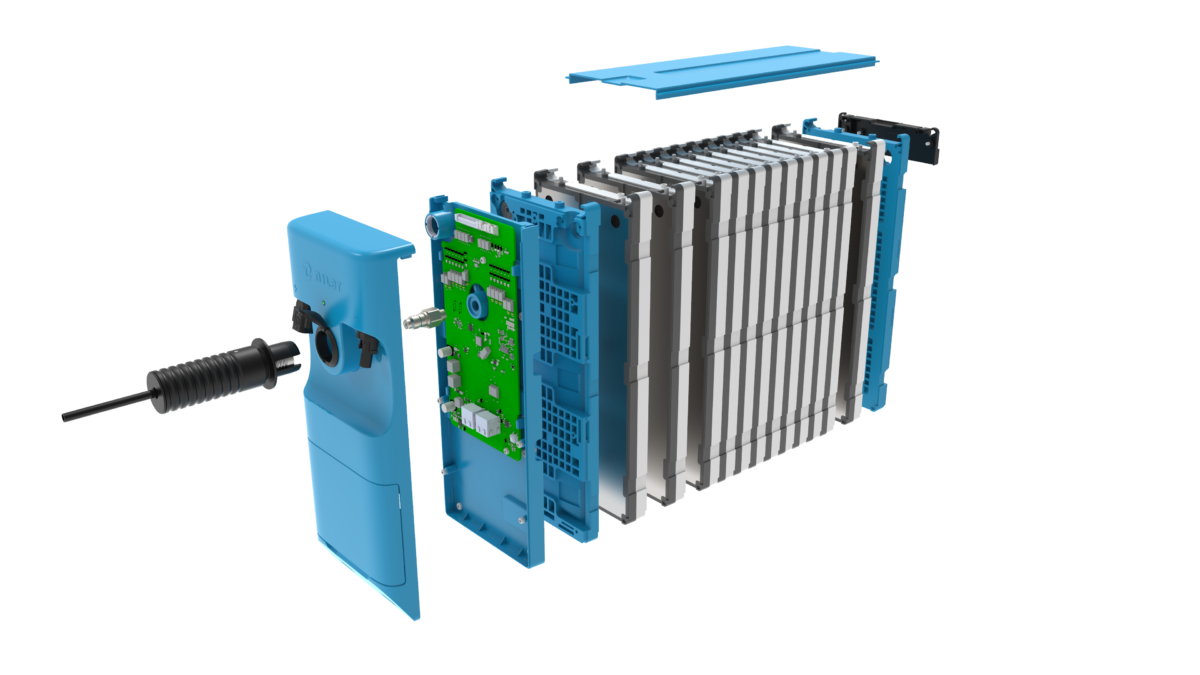Sweden-based storage system supplier Nilar International AB has started production of its ReOx reusable batteries, which can be refilled with gas to restore the original battery capacity.
The start of manufacturing activities followed an order received from Swedish renewable energy company Enequi.
“The order applies to a total of 800 batteries with associated software, for 100 units of Enequi's intelligent energy storage QuiPower Storage,” Nilar said.
“The modular Nilar battery supports a range of scalable energy storage applications to meet the energy needs of different types of commercial and industrial properties, home and residential applications as well as smart grid infrastructure applications,” the company's CEO, Erik Oldmark, told pv magazine. “It’s a good fit especially for those looking to combine multiple functionalities, such as time shifting, peak shaving, backup, frequency regulation, islanding, or uninterruptible power supply.”
The company is producing the storage systems at its factory in Gävle, Sweden, which it claims is powered by 100% renewable energy. According to the manufacturer, the natural aging process of the battery is reversible and the battery is reportedly able to operate at full capacity at least three times.
The battery consists of ten battery cells containing each a positive electrode, a separator, and a negative electrode. The cells are stacked horizontally on top of one another with a metal bi-plate in between. The outer plates act as current collectors for all cells in the module, which reportedly offers a volumetric density advantage of 10%.
The storage system is based on an electrolyte relying on nickel metal hydride (NiMH) that provides means for ionic conductivity in the cells, while occupying limited volume. The electrolyte can be regenerated and reportedly offers excellent ionic conductivity over a wide temperature range.
Popular content
The company developed the device's positive and negative electrodes through a patented technique for the compression of dry powders and used a separator that acts as an electrolyte reservoir. The biplates are used to seal the cells and provide electrical contact between the cells themselves.
“In the Nilar bi-polar design, the current is perpendicular to the electrode and bi-plate surface, making the whole biplate area used for current transfer between cells,” the company said. “This substantially reduces resistance and optimizes uniformity of current distribution over the biplate and electrode surface.”
In the proposed system configuration, each battery pack contains up to 12 modules and every module contains 10 battery cells. The battery packs can be utilized with a maximum nominal battery voltage of up to 600 Vdc.
According to the company, the batteries are also easy to recycle and offer improved safety.
“Nickel, the main constituent active material, is easily recyclable without loss of quality and any residues are sent to the metal industry for reuse,” Oldmark said. “As the water-based, non-flammable electrolyte used in Nilar’s batteries is chemically stable, heat-generating reactions cannot occur between the electrodes. Unlike many other batteries, Nilar batteries cannot spontaneously explode or even short circuit internally. Moreover, there’s no risk of heat propagation, when one cell dangerously heats up followed by the next and the next.”
This content is protected by copyright and may not be reused. If you want to cooperate with us and would like to reuse some of our content, please contact: editors@pv-magazine.com.



2 comments
By submitting this form you agree to pv magazine using your data for the purposes of publishing your comment.
Your personal data will only be disclosed or otherwise transmitted to third parties for the purposes of spam filtering or if this is necessary for technical maintenance of the website. Any other transfer to third parties will not take place unless this is justified on the basis of applicable data protection regulations or if pv magazine is legally obliged to do so.
You may revoke this consent at any time with effect for the future, in which case your personal data will be deleted immediately. Otherwise, your data will be deleted if pv magazine has processed your request or the purpose of data storage is fulfilled.
Further information on data privacy can be found in our Data Protection Policy.